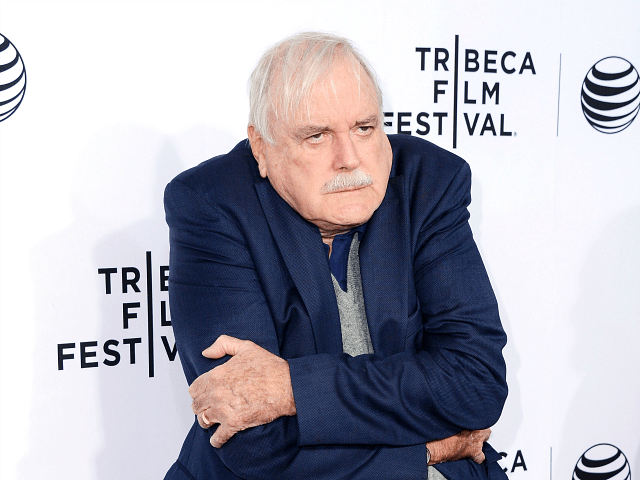British comedy titan John Cleese has warned that even more restrictive hate speech laws, such as those proposed by the SNP administration in Scotland, will be “disastrous to the creative process”.
Appearing in an online debate hosted by Dr Simon Knight of the Academy of Ideas, the Monty Python legend was asked about such iconic moments in his career as the (in)famous “don’t mention the war” episode of Fawlty Towers — temporarily memory holed by the BBC-controlled UKTV streaming service earlier this year for “outdated language” — and whether they could be recreated today in a culture in which some judges have ruled that “context is irrelevant” in determining whether or not something constitutes “hate speech”.
“What kind of fetter would that place on the creative juices, the creative process if you had to start thinking everything through three or four times before you say them?” he was asked.
“Well, it’s disastrous to the creative process because the creative process above anything else is a matter of spontaneity,” Cleese said.
“I mean, if you’re going to come out with something really interesting artistically it’s going to come out of your unconscious, and if you’re having to edit everything you say before you say it then nothing it going to happen creatively — and also things that are rather lovely and funny in ordinary conversation, they’re not going to happen either, because everybody’s thinking ‘Ooh, somebody might [be offended]’,” he explained.
Cleese added that he had himself recently been in trouble for referring to someone as “jolly”, being told: “No, no, you can’t say ‘jolly’ now because that means fat.”
“So I looked it up in the dictionary, of course it doesn’t mean fat at all — but to a small number of people it means fat, and therefore they’re trying to control the way I speak because they have a little private rule themselves that it has a completely different meaning from the one I’ve grown up with,” he said.
“This is a sort of oversensitivity, and I think some of it is because of people are trying to feel that they’re very good people; [they] almost sit around waiting to be offended, so that they can [say] Oh, I’ve been offended! Sorry everyone but that’s it, I’ve been offended, and this person who offended me is a very bad person.’ I mean, it’s actually very silly.”

COMMENTS
Please let us know if you're having issues with commenting.